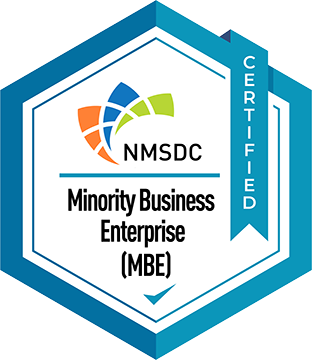How does Video Remote Interpreting work?
Anyone with a smartphone, tablet or computer that has a video camera and audio function can use Global Arena’s Video Remote Interpreting services.
Along with the described hardware, all you need is a reliable and reasonably dimensioned and configured internet connection.
Remote interpreting services allow on-demand interpreters to be sourced almost immediately, avoiding long waiting times in emergency or time sensitive situations.
A professional remote interpreting service allows you to have an accredited interpreter in a matter of seconds. The interpreter observes and listens to the proceedings and interprets just as they would if they were in the room.
Where and when you can use VRI services?
VRI is recommended for emergency situations, business meetings, simple legal proceedings, remote working and official appointments.
The use of an interpreter is normally a legal requirement in many instances. However, when appointments take just minutes, hiring an in-person interpreter will definitely be a costly expense in addition to being a coordination issue. Remote interpreting allows for effective, instant language interpretation, drastically reducing the time and expense for short assignments.
In medical emergency situations, any delay in the delivery of health care could be critical, and sometimes fatal. Emergency rooms use VRI services support to identify symptoms; explain treatments and obtain consent. Routine medical appointments benefit of Video Remote Interpreting services to ensure that patients know their treatment plans and understand the Health Care professional’s instructions when an in-person interpreter is not available.
How to Evaluate the Quality of a Video Remote Interpreter
As globalization brings speakers of different languages into closer contact; interpreters have become commonplace in a variety of contexts. Medical and legal professionals are especially used to working with linguists in hospitals and courtrooms where mutual understanding is crucial. When a linguist is not readily available in person, options such as telephonic interpreting can help overcome any language barriers.
But what about when an American Sign Language (ASL) interpreter is needed for a Deaf client? Obviously, phones are insufficient by themselves to handle a language that relies on visual and spatial cues.
Multimedia technology has enabled the spread of Video Remote Interpreting (VRI), yet it can pose challenges even for seasoned interpreters. That is why need to know, the basic information about remote interpreting sessions and what to expect, and be prepared for your VRI Assignment.
Organizations such as the Registry of Interpreters for the Deaf (RID) and Commission on Collegiate Interpreter Education (CCIE) offer widely accepted quality standards. When selecting an agency to handle your VRI needs, ask how they locate interpreters, and whether they have recognized certification.
Established language service providers (LSPs) will have a network of certified interpreters whose skills they can attest to when asked.
But this is a foundational level of quality for all ASL interpreters, regardless of the medium. Here are three additional considerations to bear in mind for evaluating an interpreter’s facility with VRI:
1. Connectivity and Technology Quality
These are the circumstances that are less under the control of the interpreter; however, the translator must anticipate and take into account to provide a good service. The client asking for VRI might be in a rural area, or have an old tablet with a poor camera. A good interpreter should be able to navigate and recover from interruptions, asking clarifying questions and paying attention to context. And while the video feed matters most for the Deaf individual, the audio also matters for the client and interpreter. As a client, make sure you are using the best technology and bandwidth you can; to ensure a consistent interpreting experience. No system is perfect; make the most of any hiccups that happen by seeing how your interpreter responds to them.
2. The Visual–Spatial Context
ASL makes heavy use of facial expression, hand shapes, body movement, and the surrounding space to provide context and meaning. While the first two can be communicated more or less intact across a video screen, the others are tougher. Screens flatten bodies into two-dimensional images and make it difficult for speakers to perceive the other participants’ immediate environment. Interpreters practiced with VRI will be able to account for these limitations by slightly altering the way they communicate. If possible, observe how the interpreter you’re working with handles a face-to-face situation and remote situation with the same client. The latter will be a bit slower and more difficult for all parties involved as they navigate the screen’s limitations. But if your Deaf client finds the interpreter easy enough to understand in both cases, that is a valuable recommendation.
3. The Hearing Side
The Deaf individual’s needs take precedence in these interactions, but interpreters must account for their other clients, too. Think about how valuable a professional demeanor and strong voice are when you participate in a video call. Video remote interpreting still has an audio component for the benefit of the hearing party to be considered. Does the interpreter project enough for the doctor or lawyer to understand their interpretation from ASL? Are they involved in the conversation; efficient, and speak formally? Many face-to-face situations are mono-directional; with hearing speakers’ statements being interpreted into ASL for the benefit of Deaf audience members. But in cases where the VRI is two-way, competent interpreters will have practiced their vocal skills as well.
The differences between face-to-face and remote may seem fairly slight; but they matter for creating the best interpreting experience possible. And if you are an ASL interpreter who wants to do VRI, think about how you’d handle these issues. Demonstrating your awareness of them to the LSPs you work with goes a long way to proving your expertise.
Analyzing if VRI is the right solution for your organization or your business
We live in an increasingly multilingual environment. The ability to communicate in an unknown language is required in many contexts and situations.
Language is king.
In some occasions, you will need an expert to interpret complicated words or allow you to communicate in sensitive situations.
Professional, accredited interpreters are highly trained in doing just that and will save you time, money and headaches by helping you to understand the situations and the communications completely. When it is not possible to hire an in-person interpreter to assist you in business, legal, medical or family matters in person, then think of Video Remote Interpreting services.
Please complete the below request if you want to obtain access to a VR Interpreter.



